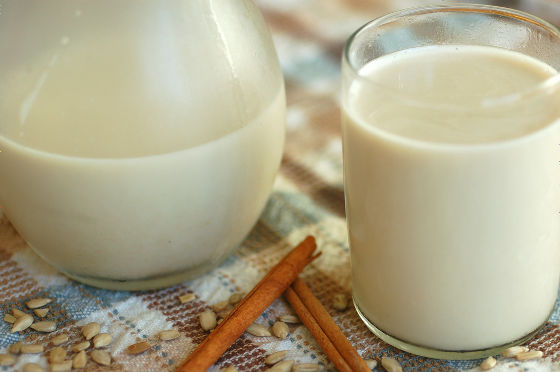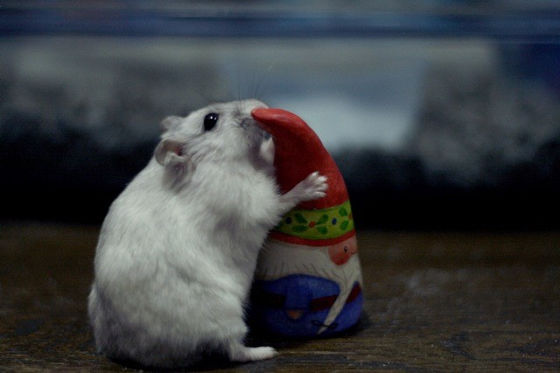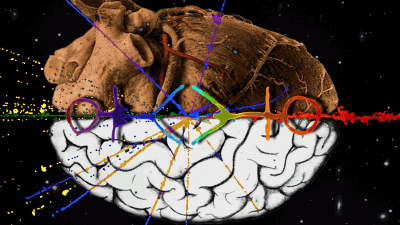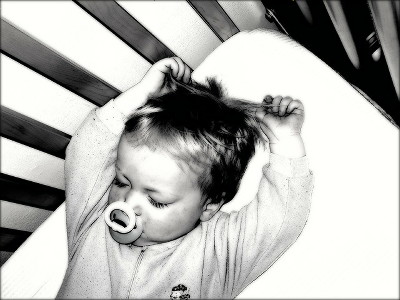Anxiety and depression are related to the state of the intestine, and behavior changes when the intestinal bacteria change

ByChiara Cremaschi
"Scolding a child and scolding it causes malpractice and depression"And the research result"Olive oil is good for depression prevention"Research on anxiety and anxiety extends to a wide range of findings such as research results, but now we also know that" intestinal bacteria are linked to spiritual anxiety ". CBC News (CBC News), such as changing behaviors when transplanting intestinal bacteria of adventurous mice into cowardly mouse and changing the behavior of autism by changing intestinal condition It is summarized.
Gut feeling: How intestinal bacteria may influence our moods - CBC News - Latest Canada, World, Entertainment and Business News
http://www.cbc.ca/news/gut-feeling-how-intestinal-bacteria-may-influence-our-moods-1.2701037
◆ When you transplant the intestinal bacteria of an adventurous mouse to a cowardly mouse, the timidity is cured

ByOakley Originals
"People with chronically bad intestines are often mentally anxious, but the cause has been a mystery so far," he said, a gastroenterologist at McMaster University Professor Stephen Collins.
About 100 trillion microbes living mainly in bacteria live in our lower gastrointestinal tract. Many of them help digestion, produce energy, eliminate bad bacteria that cause the disease, but sometimes worsen internal organs movement and have a bad influence on the brain.
Symptoms such as diarrhea, constipation, lower abdominal tension due to excessive gasIrritable bowel syndrome80% of people who have experienced anxiety and depression suffer. In addition, it is said that intestinal bacteria of autistic people often increase in number to an abnormal level.
According to a study done by Professor Collins and colleagues in 2013, it turns out that mice that have changed the type of bacteria in the intestines will change their behavior. In the experiments, two mice, a cowardly mouse and an adventurous mouse, were used to transfer the bacteria present in the intestine of one mouse to the other. At first the adventurous mouse was moving around in the fence when asked for light when put in a dark place, but stopped exploring in the dark when putting timid mouse's bacteria in the intestine. On the contrary, when moving intestinal bacteria of an adventurous mouse to a cowardly mouse, it seems that adventurous mice started to act boldly as they did.
According to Collins, this isBrain-derived neurotrophic factor(BDNF), which is thought to be caused by an increase in the level of proteins that promote and maintain the growth of nerve cells in the brain.
◆ Drink fermented milk reduces anxiety

ByJacqueline
Since the mouse is not a human being, it can not be said that intestinal bacteria act directly on human spirit by Professor Collins' research. However, Professor Emeran Mayer of the University of California, which calls himself "skeptical", acknowledges that "some of the data obtained from animal experiments can also be applied to humans."
Professor Mayer is a man who proved the connection between intestinal bacteria and the human brain. In the research published by Professor Mayer and others in 2013, a microorganism that has a good effect on the body "ProbioticsFermented milk containing 12 healthy women twice a day for 4 weeks while 11 other women without milk containing probiotics twice a day for 4 weeks I had you drink.
Professor Mayer did a brain scan while showing pictures of those who felt fear and anger to the women before and after the experiment but after the experiment women in the group who ingested probiotics had fears on their faces It was said that the response to the treatment was decreased compared to the group who did not take probiotics. "Women who ingested probiotics did not perceive negative emotions as" horrible things. "Also, their brains were less likely to respond to stress," Professor Mayer . Women who ingested probiotics did not convey the change of mood, especially after the experiment, but they did not suffer from anxiety and stress.
Professor Mayer and others are currently continuing further research, including transplanting intestinal bacteria to autistic children.
◆ Behavior of autism changes when intestinal condition changes

ByAimee Ray
Furthermore, Professor Elaine Hsiao, a neurobiologist who conducts research at the California Institute of Technology, is one of the members who is investigating the influence of intestinal bacteria on autism.
As with humans, abnormalities may also occur in the intestines of autistic mice. When putting the mouse in a box where there are two choices of toy and other mouse, the mouse which is not autistic chooses the option to play with other mouse, the autistic mouse tends to choose the toy . In addition, when you talk in a friend, the mouse of autism has a small short voice calling a friend, placing the mouse in a bottle containing wood shavings and marble, the mouse not autistic I fill marble in shavings, but I also know that mice with autism repeat marble filling and digging up.
So Hsiao told the autistic mouse for 3 weeksBacteroidesOf the bacteria were administered, the values of several bacteria returned to normal, and the behavior of the mouse itself also changed.
When giving apple sauce containing bacteria to the mouse, autistic mice stopped behaving like marble filling and digging up, and the way of communication became normal as well. However, he seems to have chosen the option of toy with the option of "Toy or another mouse".
◆ Summary

ByCarissa Rogers
Although the strict relationship between the condition in the intestines and the mood of the person is not clear,MetaboliteThere is also the theory that it is involved. Bacteria use food we ingest, but not all of what we ate as nutrients, we produce waste. This waste is carried along with the blood and reaches the brain to cause chemical action, so the state of the intestines affects the brain which is the foundation of human mood.
On the other hand, bacteriaVagus nerveThere is also the theory that communication with the brain is carried out through.
Researchers say that "further studies are needed to understand which bacteria make a positive effect and how much is appropriate," but as a treatment for autism and depression, intestinal We are planning to continue research on the possibility that it may be useful to prepare the state of.
Related Posts:
in Science, Posted by darkhorse_log







